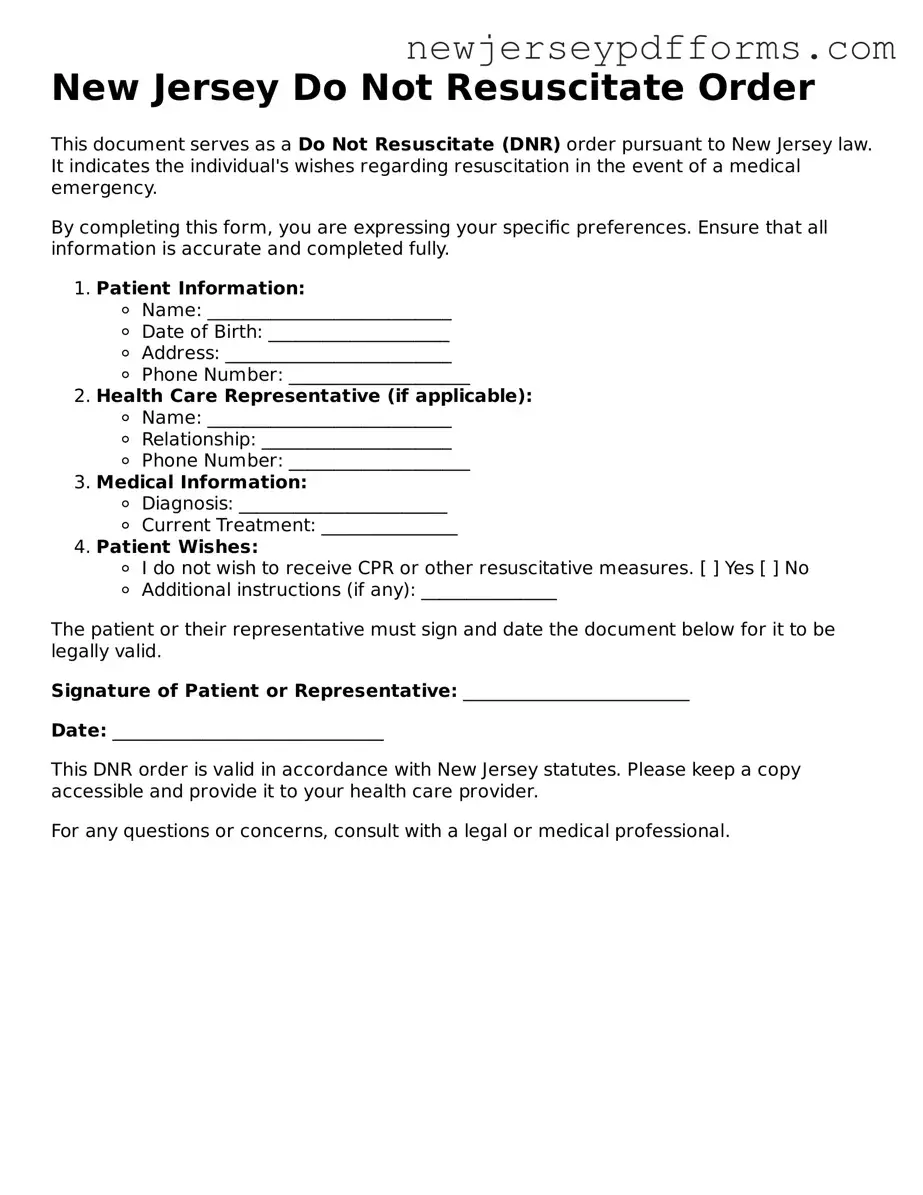Valid Do Not Resuscitate Order Document for the State of New Jersey
A Do Not Resuscitate Order (DNR) form is a legal document that allows individuals to express their wishes regarding resuscitation efforts in the event of a medical emergency. In New Jersey, this form ensures that healthcare providers respect a patient's decision to forgo life-sustaining treatments. Understanding how to properly complete this form is crucial for anyone considering their end-of-life care options.
Take control of your healthcare decisions today by filling out the DNR form. Click the button below to get started.
Open Editor Here

Valid Do Not Resuscitate Order Document for the State of New Jersey
Open Editor Here

Open Editor Here
or
Download Do Not Resuscitate Order PDF Form
Complete the form before time runs out
Edit your Do Not Resuscitate Order online and complete it quickly.